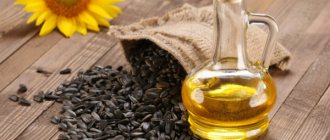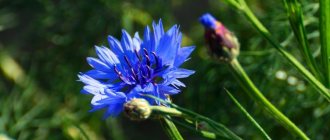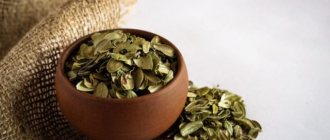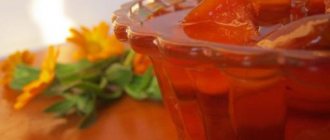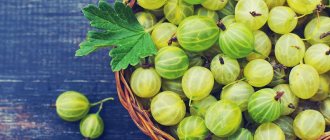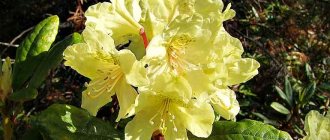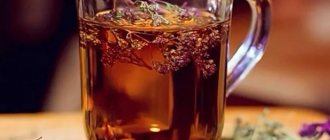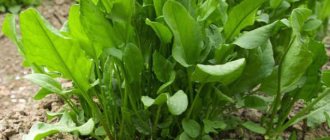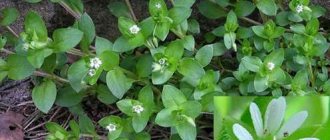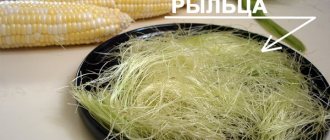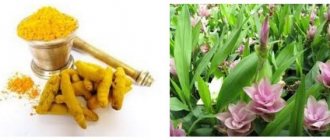What kind of plant is this
Poppy is the oldest flower, known since the Neolithic era. Then it was used as a sleeping pill, and among Catholics it is still a symbol of peace. On holidays they make poppy wreaths to decorate sacred monasteries.
During the Middle Ages, the opium properties of the flower were studied by doctors who wanted to determine the benefits of poppy for the body. It was used to relieve headaches and diseases of the digestive system, and also as an anthelmintic, expectorant and anti-inflammatory agent. Poppy seeds were present on royal tables as a seasoning.
In the East, poppy was used to treat joints and bruises. Poppy infusion coped with fever and skin diseases.
Already in the 16th century, doctors recommended the use of poppy within reasonable limits, because they also knew the harm of the opium effect.
Poppy seeds contain a lot of useful substances. They cause harm only in an immature state, since they contain many alkaloids. The seeds are almost half fat, so their calorie content is very high.
Over thousands of years, many varieties of poppy have been cultivated, which are classified according to their chemical composition and other characteristics. There are more than 100 varieties, each of which scientists claim is an opium crop. However, the benefits of poppy are so enormous that they cover this disadvantage and possible harm.
Use in folk medicine
From a medical point of view, the opium poppy is considered the most valuable. A number of painkillers, sedatives and cough suppressants are made from the milky sap of the plant. Samosae poppy is popular in alternative medicine, teas and decoctions from which are prescribed for:
- laryngitis, tracheitis, bronchitis;
- rapid heartbeat;
- swelling of the joints;
- insomnia, anxiety, stress;
- spontaneous urination;
- inflammatory processes in the bladder;
- stomach colic, intestinal disorders, flatulence and diarrhea.
The starchy substances in cassava have an enveloping and soothing effect on the mucous membranes of the stomach and intestines.
Additionally
- The leaf powder is applied to the cut site in case of severe bleeding.
- A decoction of poppy heads is prescribed for scanty or irregular periods.
- An infusion of leaves helps with fever and colds (as a diaphoretic and antipyretic).
- An infusion of flowers is prescribed to treat respiratory diseases.
- An infusion of leaves is prescribed as an expectorant and cough emollient.
- Compresses from a decoction of leaves help with joint pain and hemorrhoids. To heal hemorrhoidal fissures, treatment is also prescribed in the form of tampons soaked in cuff infusion.
- A decoction of the seeds relieves ear pain (drop in) and toothache (apply cotton wool with the decoction to the tooth).
- Steamed leaves are recommended to be applied to bruises, sore and inflamed joints. It is recommended to apply grated mandrake root to areas of joint swelling and bruises.
- Crushed green poppy heads are used as an anthelmintic.
- Fresh juice is used to cleanse warts on the skin.
- Taking the decoction orally relieves tension in the blood vessels, which reduces the risk of developing atherosclerosis and varicose veins.
Chemical composition and calorie content of poppy
Useful properties are determined by the valuable composition:
- B vitamins, vitamins C and E;
- large amounts of calcium;
- phosphorus;
- magnesium;
- zinc;
- iron;
- potassium;
- copper;
- selenium;
- iodine;
- betaine;
- choline;
- cellulose;
- 18 important amino acids.
Vegetable fats occupy 1/2 of the total composition. The calorie content of poppy seeds per 100 grams is 520-556 kcal. This is a very high value, so you can get a lot of energy from it, but people on a diet need to watch the amount they consume.
Energy value of poppy:
| Squirrels | ≈18 |
| Fats | ≈42 |
| Carbohydrates | ≈ 28 |
Health benefits of poppy seeds
The health benefits of edible poppy are extremely high, since it contains a large percentage of nutrients that are easily absorbed by the body. They have such beneficial effects as:
- Analgesic effect.
- Preservation of visual acuity (thanks to antioxidant compounds).
- Increased energy reserves.
- Prevention of anemia (due to high iron content).
- Improved digestion (with fiber).
- Maintaining a healthy nervous system (calcium, B vitamins).
- Increased immunity (zinc).
- Strengthening bones (calcium).
- Reducing blood pressure and cholesterol levels, preventing atherosclerosis, strengthening the heart and blood vessels (potassium, magnesium, oleic acid, Omega-3, Omega-6).
- Prevention of cancer (oleic acid).
- Preventing the formation of kidney stones (potassium).
- Improves metabolism.
- Relieves cough and heavy breathing.
- Fights insomnia.
When used carefully after consultation with a specialist, poppy can be beneficial even for diabetes.
Natural source of antioxidants, vitamins and minerals from Peru
Maca peruviana is a plant native to the central mountainous regions of Peru, whose altitude exceeds 3500 meters. For many centuries it formed the basis of the diet of the indigenous tribes of South America, and has recently become popular throughout the world due to its high nutritional value and medicinal properties.
It is a natural source of antioxidants, vitamins and minerals, which, when absorbed by the body, regulates the functioning of vital systems.
Maca acts as an antidepressant, anti-inflammatory and endocrine system regulator. It is very useful in treating hormonal and metabolic disorders.
In addition, due to its health benefits, many consider it a miracle herb that has a particularly positive effect on the well-being of women.
Since maca is not yet well known to the general public, in this article we want to talk about its 7 beneficial properties for women's health.
Is poppy possible for pregnant and lactating women?
When consumed wisely, poppy seeds only bring benefits to the child and the expectant mother. It will compensate for the lack of vital microelements and also help relieve stress. One bun with poppy seeds will be enough. However, excessive consumption contributes to the development of heart and respiratory diseases in the fetus. Therefore, you should definitely discuss this issue with your doctor.
During lactation, poppy is allowed to be eaten only in reasonable quantities. In this case, you need to monitor the baby’s reaction and condition. If he develops allergies or colic, he should immediately exclude the plant from his diet.
Preparations with poppy alkaloids
Since the 19th century, drugs containing morphine began to be produced. Thanks to their pharmacological properties, they treated cough and pneumonia. It was then discovered that they could be harmful and addictive, so their production was discontinued.
Some opium alkaloid derivatives are still in use today. The most popular are codeine and papaverine. The first is included in painkillers, sedatives and cough suppressants. The second helps to relax muscles and improve blood circulation in the brain.
Important! You should take poppy-based medications only as directed and under the supervision of your doctor.
Useful properties of poppy
Depending on the concentration, morphine preparations are prescribed as a sedative that suppresses the cough reflex. Morphine can suppress severe pain, both physical and psychogenic in origin. Has an anti-shock effect, reducing the activity of pain src=»https://ecobabka.ru/wp-content/uploads/2018/06/Morfin-iz-maka-pomogaet-ot-boli-min.jpg» class=»aligncenter» width ="750″ height="266″[/img]
In medical practice, it is used for acute myocardial infarction, to relieve preoperative and postoperative pain, prescribed for some X-ray studies (stomach, gall bladder), and to reduce pain in malignant tumors.
It has a narcotic effect and is persistently addictive , therefore it is available only by prescription , like other narcotic analgesics.
Maca preparations also have the following effects on the body:
- hemostatic;
- diaphoretic;
- antipyretic;
- astringent;
- expectorant;
- emollient;
- pain reliever;
- sedative.
Use of poppy in folk medicine
Since ancient times, folk medicine has taken into account not only the health benefits of poppy seeds, but also all parts of this flower.
A decoction of seeds helps relieve fatigue, toothache and ear pain, softens cough, and improves digestion. It fights diarrhea, colic, dysentery, inflammation of the kidneys and pancreas. The infusion helps with insomnia and nervous disorders. To prepare it, you need to pour 5-10 g of seeds into a glass of boiling water and wait until it cools. Then strain and take 1 tablespoon several times a day. To eliminate insomnia, you should add honey to the infusion.
The leaves are used as a tonic for fever. They also help fight warts. Compresses are made with steamed leaves to eliminate bruises and joint pain.
A decoction of the roots relieves headaches. The anthelmintic property of poppy is also known. You need to infuse a tablespoon of seeds for 20 minutes in warm milk and consume once a day for a week.
An alcohol tincture is made from poppy petals to treat coughs, mouth ulcers, insomnia and fatigue. To prepare it, the petals are kept in vodka for about two weeks.
Parts of poppy seeds boiled in oil have long been used to cleanse and restore the liver (5 drops per day).
It must be remembered that poppy can bring not only benefits, but also harm to health. Therefore, you shouldn’t get too carried away with it.
Options for using poppy at home
The Polzateevo resource managed to identify several options for using parts of the medicinal plant from the abundance of existing information. These approaches are truly effective in their field, their benefits for human health are proven and obvious.
In folk medicine, parts of poppy are used as follows:
- To cleanse the liver, even in ancient times, the leaves, flowers and stems of the plant were boiled in oil. The resulting product cleansed the liver well and contributed to its restoration. We took the prepared composition literally 5 drops no more than once a day.
- You can make a tincture from poppy flowers that can be used to treat mouth ulcers. It is enough to steep the petals in vodka for 2 weeks and strain the mixture. The finished product is applied to the wound surface in the morning and evening.
- Poppy seeds infused in lukewarm milk for 15 minutes can be used as a dewormer. Take a tablespoon of seeds per glass of drink. You need to drink and eat everything, the procedure is repeated no more than once a day for a week.
- Poppy leaves steamed in a steam bath can be applied to sore joints to relieve the condition.
With the right approach, the benefits of poppy will manifest themselves in other areas:
- For skin. If you soak poppy seeds in water or milk and then grind them into a paste, you can get an effective cosmetic product. It is used as face masks and applications. The product helps in the treatment of eczema and inflammation of the skin, it cleanses and rejuvenates the epidermis, restoring its softness.
- For hair. Soaked poppy seeds in water mixed with white pepper and curd forms a medicine to treat dandruff. You just need to apply it to the hair roots and rinse off after half an hour. But poppy seeds, previously soaked in coconut water, will also speed up hair growth.
Finally, poppy seeds are a popular culinary ingredient. It gives food a spicy-sweet flavor with nutty notes. The grains pair well with a variety of foods, allowing them to be used in a variety of recipes.
Poppy in home cosmetology
Due to its beneficial properties, poppy is widely used in home cosmetology and is even present in some cosmetics. In this form, it is absolutely harmless, unless we are talking about individual intolerance.
For skin
Poppy petals and seeds are used to make homemade skin masks and lotions that:
- moisturize;
- soften;
- slow down aging;
- calm down;
- restore cellular metabolism.
The high efficiency is explained by the content of beneficial acids (oleic, palmitic, linoleic and others). The plant is used to treat various inflammations, itching and even eczema. To do this, poppy seeds are soaked in water or milk. You can add lime juice and many other ingredients to enhance the effect of the mixture.
Poppy seeds and cottage cheese can be used to make an excellent scrub for the face and body.
Milk of the poppy helps remove bruises and circles under the eyes.
An infusion of the petals and seeds of the plant is used as a lotion.
For hair
We recommend reading: Benefits of bell pepper, properties
Poppy seeds can help get rid of dandruff. To create such a healing composition, they are soaked in water and white pepper and cottage cheese are added. The mass is applied to the roots and washed off thoroughly after 30 minutes. And if you soak poppy seeds in coconut water, you get hair growth products. In addition, it is used to treat weak and split hair.
We recommend reading: Chili peppers: benefits and harms, properties, how to eat them
Contraindications to the use of poppy seeds
Due to the fact that poppy seeds can provoke the release of bile in a person and have a fixing effect on the intestines, they should not be consumed by people suffering from chronic constipation or who have a history of gallstone disease.
In addition, poppy can harm the body of people with:
- Bronchial asthma;
- Depressed breathing;
- Oxygen starvation of the blood;
- Emphysema;
- Alcohol addiction;
- Liver pathologies;
- Allergies.
Pregnant women, nursing mothers, children under two years of age and the elderly should avoid using poppy seeds for food.
And the use of decoctions of poppy seeds or desserts with a large amount of poppy filling should not be combined with alcohol, as this is fraught with very negative consequences for health.
Poppy oil: beneficial properties and applications
The beneficial properties of poppy oil were known to the ancient Greeks. It includes:
- Omega-6;
- Omega-9;
- stearic acid;
- vitamins (B1, B2, P, E);
- alkaloids.
Due to this beneficial composition, poppy seed oil is often used in medicine. It normalizes the functioning of muscles, the cardiovascular and nervous systems, relieves headaches and stress, fights insomnia, skin and cancer diseases, and strengthens the body. To do this, take a teaspoon after meals. It can also become the basis for therapeutic massage.
Poppy oil has also found use in cooking. It is used for frying and seasoned with healthy salads and other dishes.
In cosmetology, poppy seed oil is considered the most valuable product that is suitable for any skin type. It has an anti-aging effect, moisturizes, increases skin elasticity, and cares for the skin around the eyes. In addition, the oil has a beneficial effect on the condition of hair and nails. They enrich shampoos and conditioners with it or use it as an independent product, often in combination with other oils, enhancing their beneficial properties.
Benefits of poppy milk
Poppy milk is made from not fully ripened grains. This drink is a valuable source of proteins, satisfies hunger well and provides a lot of energy, which is especially important for vegetarians. It also contains almost 5 times more calcium than cow's milk, highlighting its benefits.
In folk medicine, poppy milk is used for:
- normalization of sleep;
- stress suppression;
- control of helminths;
- treatment of gastrointestinal diseases and bladder inflammation;
- relief from cough and bronchitis;
- increasing immunity;
- fight against hemorrhoids;
- eliminate skin problems.
The milk should be taken immediately after preparation. It's better to do this before bed. You can store it in the refrigerator for no more than a day.
You should use milk of the poppy for its benefits with caution, as it can be addictive, which will cause considerable harm to the body.
Recipe for making poppy milk
You can prepare poppy milk according to the following procedure:
- Rinse 150 g poppy seeds.
- Fill with water overnight.
- Beat in a blender, gradually adding 500 ml of water.
- You can add honey or dates as a sweetener, as well as spices to taste.
- Strain.
To saturate the body with the necessary substances for benefit, you should drink a glass of this milk a day. It can be used as an ingredient in smoothies, tea, cocktails and various dishes.
The remaining seeds are used for baking, eaten with honey or used as a scrub.
Poppy seeds in cooking
The benefits of confectionery poppy seeds are highly valued by culinary experts. It is especially often used as a topping or filling for baked goods. Oriental sweets, Indian curry sauce and traditional dishes of many nations are made from it. Poppy is universal, as it is stored for a very long time and goes well with a large number of dishes and sauces. It gives them a spicy, sweetish taste with a slightly nutty aroma.
To make the seeds soft, they are poured with boiling water for a couple of hours, and then passed through a meat grinder. It is also useful to add grains to fermented milk products.
Harm of poppy and contraindications
In some cases, poppy can cause serious harm. It rarely causes allergies, but if abused, addiction and even opium poisoning can occur. Therefore, drugs containing it should be taken only under the supervision of a specialist so as not to cause harm to the body.
Among the contraindications of poppy are:
- individual intolerance;
- age under 2 and after 60 years;
- alcohol addiction;
- heart failure;
- cholelithiasis;
- constipation;
- lung diseases;
- liver diseases.
You should also not forget about the high calorie content of poppy seeds, which can also harm the body.
Beneficial and harmful properties of poppy
Almost 50% of the total weight of the seeds is oily substances. They contain oleic acid, a compound that is part of the Omega-9 group of unsaturated fatty acids. The substance prevents the formation of cholesterol plaques.
Roll with poppy seeds
B vitamins have a positive effect on the nervous system. Vitamin PP is useful for skin diseases, diarrhea, allergies, and improves blood circulation. In folk and traditional medicine, the therapeutic properties of the plant are used:
- an infusion for insomnia is prepared from the seeds ;
- the product is used against intestinal parasites and for the normal functioning of the gastrointestinal tract;
- medications that have an analgesic effect are prescribed for ear and toothaches;
- papaverine, codeine - opium alkaloids help with spasms;
- extract from poppy seeds helps with oncology.
The product does harm, not benefit, to those who suffer from alcohol addiction, heart failure, chronic constipation, liver and lung diseases (asthma, emphysema). Nutritionists do not recommend consuming poppy seeds for children under 2 years of age and older people.
